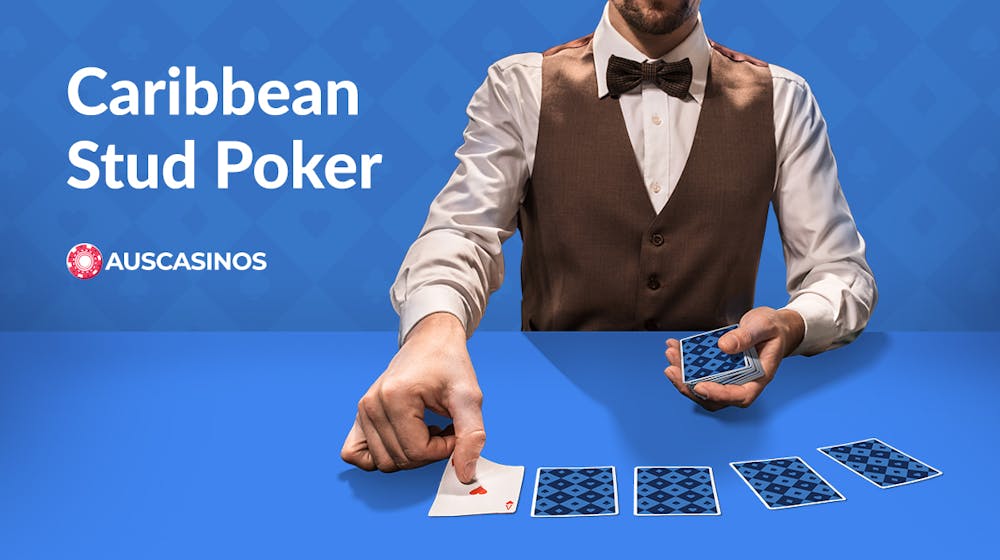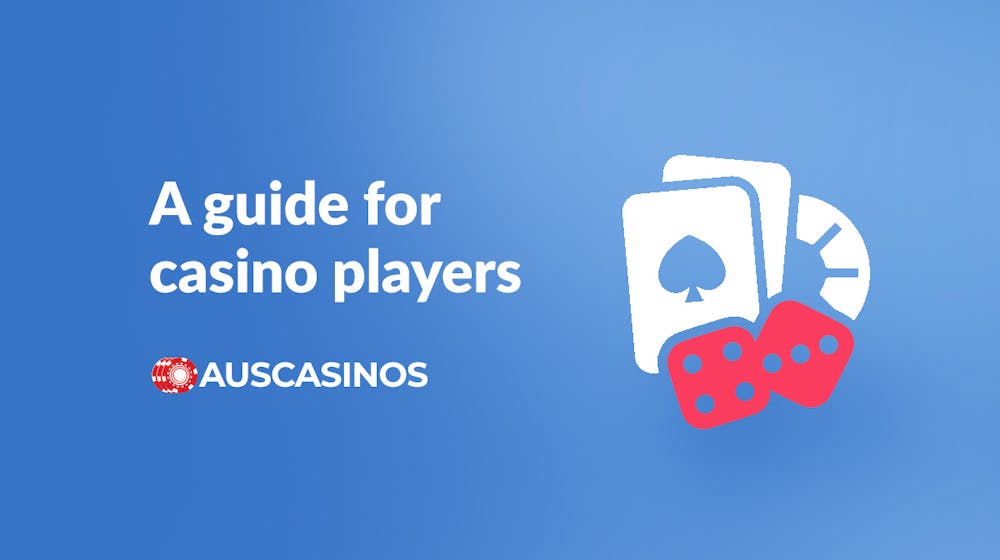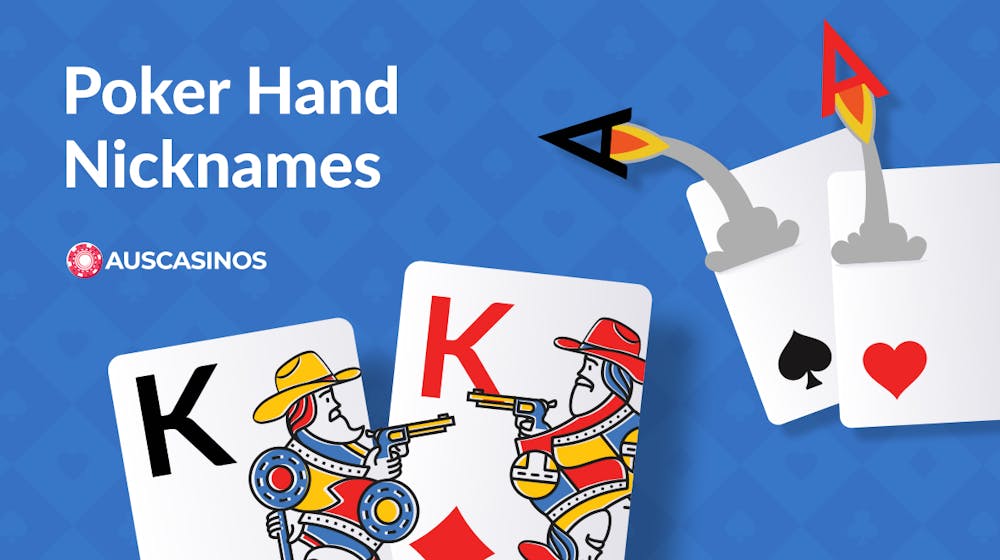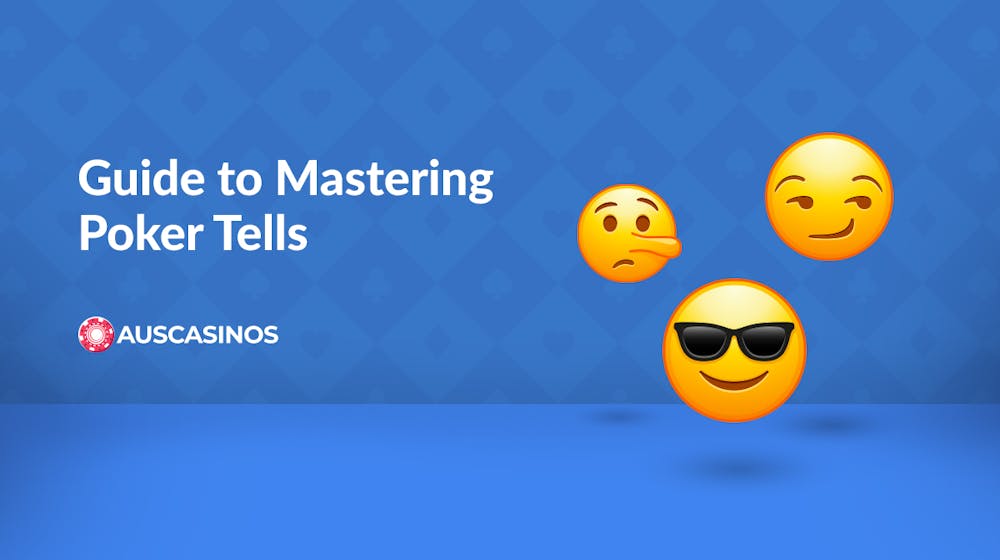How To Play Caribbean Stud Poker: Your Guide to Beating the Dealer


Caribbean Stud Poker is a fast-paced variant of poker that originated in the 1980s on cruise ships sailing the Caribbean.
It’s most closely related to Five-Card Stud, but with one big difference—you play against the dealer, not other players. There’s no bluffing involved, making it simpler for new players to pick up.
This guide covers all the essentials—from the simple betting structure to hand rankings and the exciting progressive jackpot. You’ll learn how to make informed decisions when to raise or fold based on hand strength, and how payouts work.
Key Takeaways
- It’s You vs. the Dealer: You play only against the dealer, and they must have Ace-King or better to qualify.
- Simple Betting Structure: The game has two main bets—an ante and a raise, with no multiple betting rounds.
- Raise with two pairs or better: Be cautious with Ace-King, raising only when the dealer’s upcard is favourable.
- Payouts Vary by Hand Strength: Up to 100:1 for a Royal Flush.
- Progressive Jackpot Side Bet: Offers huge payouts for rare hands like a Royal Flush or Straight Flush.
Caribbean Stud Poker Rules
If you're familiar with traditional poker, Caribbean Stud will feel pretty familiar. It’s most closely related to Five-Card Stud, where players receive five cards and aim to build the best hand possible.
However, the big difference in Caribbean Stud is that you’re playing against the dealer, not other players. There's no bluffing involved, just straight-up strategy and odds, making it easier for new players to pick up.
Your goal is simple: get a better hand than the dealer.
Here’s a quick breakdown of the rules:
- Place the Ante: Before the game starts, you’ll place an ante bet. This is required by all players. There are no poker blinds in Caribbean Stud
- Deal the Cards: You and the dealer will each receive five cards. The player's cards are all face-up, but the dealer's are all face-down except for one card.
- Fold or Raise: Based on your hand and the dealer’s upcard, you have two options:
- Fold and forfeit your ante.
- Raise by doubling your ante, which keeps you in the game.
- Dealer Qualification: To continue, the dealer needs to have at least Ace-King. If they don’t qualify, you win even money on your ante, and your raise bet is returned.
- Compare Hands: If the dealer qualifies, you’ll compare hands.
- Dealer wins: You lose both the ante and the raise.
- Player wins: You win the ante at 1:1, and your raise bet is paid out according to the hand ranking (up to 100:1 for a royal flush!)

Caribbean Stud Poker: The Basic Betting Action
In Caribbean Stud Poker, there is only one main betting round. The game's structure is very straightforward, with all bets made before any cards are revealed or compared. Here’s a quick breakdown of how the betting works:
- Ante Bet: This is the initial bet placed before the cards are dealt. Every player must place an ante to participate in the round.
- Raise or Fold: After receiving your five cards and seeing the dealer's one face-up card, you have a decision to make:
- Fold: If you choose to fold, you lose your ante and the hand ends for you.
- Raise: If you like your hand and think it can beat the dealer’s, you raise. The raise is always double the ante. There is no option to just call or check – raising is the only choice to stay in the game.
After the raise, the dealer's hand is revealed, and the hands are compared to determine the winner.
There are no additional betting rounds like in games such as Texas Hold'em or Omaha. The action is quick and straightforward: place your ante, decide whether to fold or raise, and then see who wins!
Caribbean Stud Poker Hand Rankings
The hand rankings are the same as standard poker, from high card to royal flush:

Winning a Hand in Caribbean Stud Poker
Winning a hand depends entirely on the dealer’s ability to qualify first and foremost.
The dealer qualifies if they have at least an Ace-King or a better hand. The odds state that the dealer will qualify about 56% of the time, meaning just under half of the time, they won't meet the minimum hand to compete.
- If the dealer doesn’t qualify, you win even money on your ante, and your raised bet is returned.
- If the dealer qualifies, your hand is compared to theirs:
- If your hand is better, you win both the ante (paid at 1:1) and your raise bet, which is paid according to your hand ranking (e.g., 50:1 for a straight flush, 6:1 for a flush).
- If the dealer’s hand is better, you lose both the ante and raise.
- If the dealer qualifies, your hand is compared to theirs:
The key to winning is understanding when to fold or raise based on the strength of your hand and the dealer’s upcard.


A Closer Look at Qualifying
Here's an example to illustrate how it works if the dealer doesn’t qualify:
Let's say:
- Your hand: Queen-10-7-5-2 (a high card hand).
- The dealer’s hand: Ace-9-7-3-2 (they don’t qualify because they don't have Ace-King or better).
Now, even though the dealer's Ace technically beats your hand (since Ace is higher than Queen), they didn't meet the qualifying requirement (Ace-King or better). So, here's what happens:
- Your ante bet was $10: You win even money on this, so you get your original $10 back plus an additional $10 (a total of $20).
- Your raise bet was $20: Since the dealer didn’t qualify, your $20 is simply returned to you (no win or loss on this part).
So, despite the dealer having a higher hand, you still walk away with a total of $40 ($20 from the ante win and $20 returned from the raise).
Odds and Payouts in Caribbean Stud Poker
In Caribbean Stud Poker, the odds of landing different hands vary greatly. Strong hands like a Royal Flush are extremely rare, with odds of just around 1 in 65,000 hands. More common hands like One Pair or High Card occur frequently, with One Pair showing up about 42% of the time. Understanding these odds can help you make smarter decisions on when to raise or fold, giving you an edge in the game.
Understanding the Paytable in Caribbean Stud Poker

The payout structure in Caribbean Stud Poker is unique compared to other poker variants. Unlike traditional poker games, where you bet in multiple rounds, Caribbean Stud offers fixed payouts based on the strength of your hand, with bigger payouts for stronger hands.
The ante always pays 1:1, while the raise bet is what varies depending on your hand ranking. This distinct payout system sets Caribbean Stud apart from other poker games.
- Ante Bet Payout:
- If you win, your ante bet always pays even money (1:1), no matter the strength of your hand.
- For example, if your ante was $10, you get $10 back in winnings for the ante bet, regardless of whether you had a pair or a straight.
- Raise Bet Payout:
- This is where the big difference comes in. The raise bet is paid out based on the strength of your hand, with stronger hands earning much higher payouts.
| Hand | Payout Odds | Probability |
|---|---|---|
| Royal Flush | 100:01:00 | 0.00001539 |
| Straight Flush | 50:01:00 | 0.00027851 |
| Four of a Kind | 20:01 | 0.00168067 |
| Full House | 8:01 | 0.02648571 |
| Flush | 6:01 | 0.03025492 |
| Straight | 4:01 | 0.04619382 |
| Three of a Kind | 3:01 | 0.02112845 |
| Two Pair | 2:01 | 0.04753902 |
| One Pair | 1:01 | 0.42256903 |
| High Card (Ace) | 1:01 | 0.304 |
A Closer Look at Payouts
Example of a Payout:
Let’s say you bet:
- $10 on the ante, and
- $20 on the raise (since you doubled the ante).
If you end up with a Full House and beat the dealer’s hand:
- The ante bet will pay you $10 (1:1).
- The raise bet pays at 7:1 for a Full House, so you win $140 (7 x $20).
- In total, you would walk away with $150 in winnings (plus your original $30 back)
Expert Tips For Caribbean Stud Poker
Making the right decision with your starting hand is key to success in Caribbean Stud Poker. Knowing when to raise or fold can drastically improve your odds. Here are expert tips and guidelines for handling your starting hands:
- Always Raise with a Pair or Higher: If your hand contains a pair or stronger, raising is generally the best move. These hands give you a solid chance of beating the dealer.
- Fold with Less Than Ace-King: If your hand is weaker than the dealer's qualifying hand (Ace-King or better), it's usually better to fold and avoid risking your raise bet.
- Ace-King Hands: Ace-King hands require careful evaluation based on the dealer’s upcard:
- Raise if the dealer’s upcard is between 2♣ and Q♣, or if the upcard matches one of your cards.
- Raise if the dealer shows A♦ or K♠, and you hold a pair of Jacks or Queens.
- Raise if Dealer's Card Matches Yours: If the dealer’s shown card matches one of your own cards, raising can give you an edge.
- Raise with Queens or Better: If you have Queens or better, and the dealer’s card doesn’t match your 4th highest card, it’s usually safe to raise.
Betting in Caribbean Stud Poker
Betting in Caribbean Stud is straightforward, but strategic decisions hinge on hand strength.
- Why Bet?
- To maximise payouts when you hold strong hands like two pairs or better.
- To put pressure on weaker dealer hands, especially when the dealer shows a low upcard.
- When to Bet?
- Always raise with two pairs or better.
- For Ace-King hands, raise only if the dealer’s upcard is strong (Ace or King) or matches your cards.
- How Much to Bet?
- The raise bet is always double the ante. No additional raises are allowed once the decision to raise has been made.
Caribbean Stud Poker vs Traditional Poker
Here are some notable differences between Caribbean Stud Poker and more familiar poker games like Texas Hold'em or Five-Card Stud:
| Caribbean Stud Poker | Traditional Poker (e.g., Texas Hold'em) |
|---|---|
| You play against the dealer, not other players. | Players compete against each other, not just the dealer. |
| Table Position doesn't matter; all players act independently. | Position is critical and affects poker strategy throughout the hand. |
| Fixed payout structure based on hand strength. | No fixed payouts; winnings depend on the pot built from player bets. |
| Dealer must qualify with Ace-King or better for the game to continue. | No dealer qualification, every hand is played out fully. |
| One betting round (ante and raise). | Multiple betting rounds with options to check, call, raise, or fold. |
| Optional progressive jackpot side bet. | No jackpot side bets in most traditional poker games. |
Side Bets in Caribbean Stud Poker
Now, let’s get to the big payouts—the progressive jackpot in Caribbean Stud Poker! This side bet can deliver massive rewards if you hit a monster hand. Below, you’ll see the typical payout structure for the progressive jackpot, though the exact amounts may vary slightly between different online casinos.
Here’s what you can expect when placing a side bet on the jackpot:
| Hand | Progressive Jackpot Payout |
|---|---|
| Royal Flush | Total Jackpot |
| Straight Flush | 10% of Jackpot |
| Four of a Kind | $500 |
| Full House | $100 |
| Flush | $50 |
Keep in mind, hitting these hands can be rare, but when you do, the payouts are huge! The Royal Flush rewards the entire jackpot, while even a Flush can earn you a nice bonus.
Caribbean Stud Poker FAQ

Emily is our seasoned content writer. She writes easy to read and helpful game guides, so you can quickly understand the rules of each game and get some useful tips that can help boost your chances of winning.
Read more about the author




